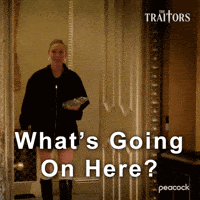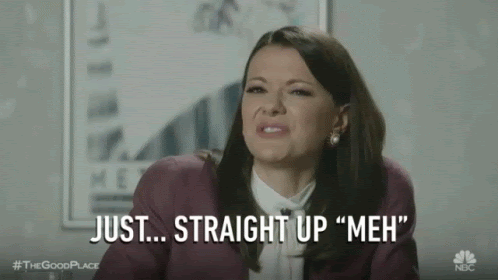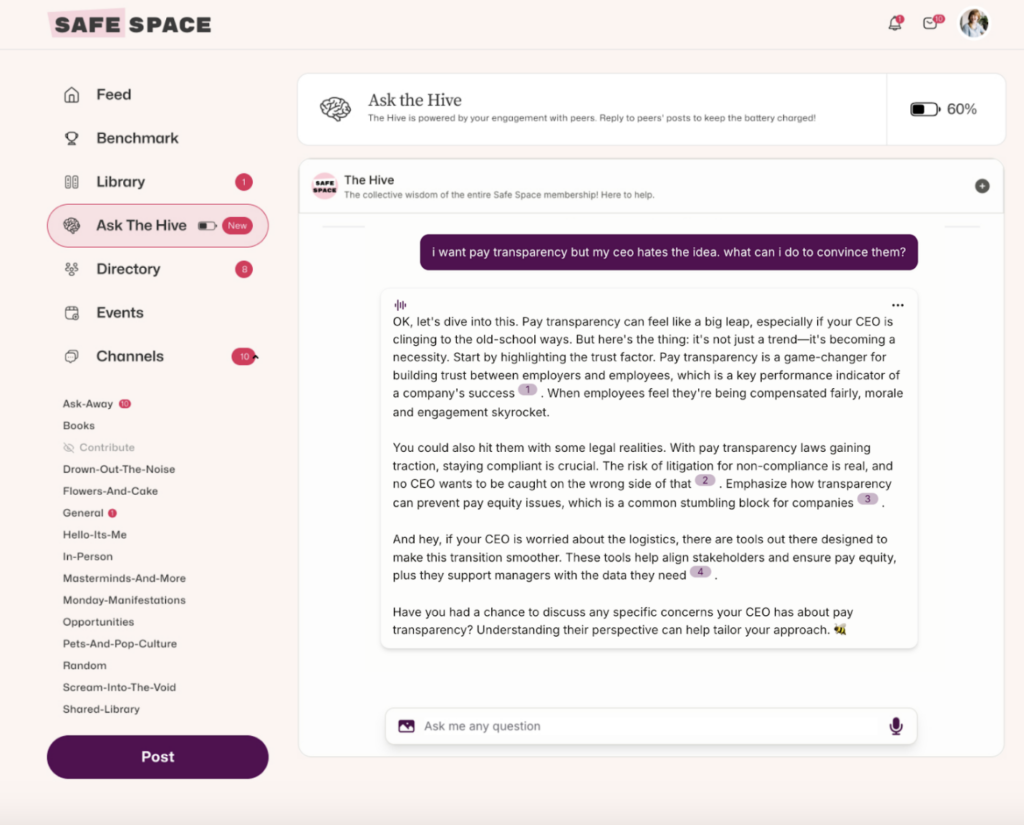
🤯I read a stat last year about how your manager has just as much impact on your mental health as your partner and more of an impact than your doctor or therapist.
I still think about that stat at least once a week.
Managers can truly make or break an employee’s experience at work.
Gallup’s latest survey showed that managers were the group that had the biggest decline in this engagement this last year.
It worries me – and it should worry you too!
Because managers are:
- Multipliers for their team. We know there’s a connection between low management engagement and low team performance.
- The bridge between strategy to execution. Managers are supposed to give clarity about goals, strategy, and expectations. If they’re not engaged things can happen like goals slipping, deadlines being missed and accountability vanishing.
- Culture builders. Managers are your frontline culture. They are interacting every day with employees and they could be either championing the culture, poisoning the well or just checking out.
TBH: If your managers are disengaged they’re probably providing a less than ideal experience to your employees.
And on the list of what employees want there is an item that says a good manager. In fact, in many studies we see that having a good manager can rank right after compensation.
Now this is a topic worth many editions but I want to start at the very beginning.
We know all these things about engagement, how hard the manager job is, how more folks are saying they don’t want to be managers but can we actually assess our managers properly?
Are your managers:
- Good
- Bad
- Meh
I bet you have a strong idea what type each of your managers is but let’s see!
The good:

There are a lot of different ways to define a “good manager” but here’s mine:
A good manager is empathetic, a clear communicator, and strategic. They drive results on their team by building trust, developing the talent, and connecting the day to day work to a greater purpose.
Let’s break it down across these 3 categories and look at what behaviors may be displayed.
❤️Empathy: understanding and valuing your team members’ experiences, perspectives, and emotions to lead with support and compassion.
JOIN 150K+ HR LEADERS
Get insights, learnings, and advice on how to build companies and cultures that people actually love.
No spam. Unsubscribe any time.
- Builds an environment where the team feels psychologically safe enough to speak up and share mistakes they’ve made.
- Listens actively and acting on employee input when relevant
- Notices shifts in energy and checking in early
- Shows care during life events, transitions, and tough times
💬 Communication:
- Cleary sets expectations and delivers timely feedback if those expectations aren’t aligned
- Tailors communication style to each member of the team
- Holds consistent, meaningful 1:1
- Communicates up, down, and across with transparency
- Encourages hard conversations
🧠Strategic:
- Aligns the team goals with the broader business goals
- Thinks long-term while managing short-term execution
- Makes decisions proactively rather than reactively
- Develops the talent for long term growth
Here are a few examples of how a good manager partners with HR:
➡️They notice an employee seems disengaged, overwhelmed, or off their game. They come to HR to seek support on how to support the employee before things escalate.
➡️They raise a flag when they know their team won’t meet a deadline due to a bandwidth issue or resourcing problem. They don’t come to complain, but instead try to collaborate on a solution and are transparent in their communication about the issue.
➡️They advocate for their high-potential employees, asking HR about promotion paths, stretch assignments, or mentorship because they know how to grow their talent.
I bet you are thinking of a few managers you work with…
⭐Who gets your gold star?
The bad:

In the ideal world, we’d all have good managers. But we know nothing is ideal in HR. So buckle up because it’s time to dive into bad managers. We ALL have encountered one or had the misfortune of being managed by one.
Bad managers create confusion, erode trust, and drive top performances out. Oftentimes they won’t even realize THEY ARE THE PROBLEM.
Let’s use the 3 categories and take a peak and the behaviors that might pop up.
❤️Empathy:
- Lacks emotional intelligence
- Ignores conflict, plays favorites, or fuels tension (ick)
- Doesn’t view the team as people but rather a resource (double ick)
- Taking credit for wins but distances themselves from failures
- Making assumptions about employee needs without asking
💬 Communication:
- Is inconsistent or unclear which creates confusion
- Avoids giving real feedback or criticises based on preference not impact
- Uses passive-aggressive language instead of direct conversations
- Sends mixed messages — tells HR one thing, tells the team another
🧠Strategic:
- Lacks clear vision and struggles with team’s direction or purpose
- Makes short sighted decisions and fails to plan for the future
- Prioritizes control over collaboration
- Assigns work without aligning it to roles, strengths or capacity
Here are a few examples of bad managers:
➡️They fail to communicate changes from leadership on the shifting priorities which leaves the team asking each other what’s going on and scrambling to pivot.
➡️They can’t step out of the day-to-day, spending their time doing tasks instead of focusing on the bigger picture strategy items.
➡️They insist on approving everything which slows down decision-making. Eventually they become the blocker for progress — but blame the team when deadlines slip. (Been here before and this example hurt my soul.)
I know, I JUST KNOW, you are thinking of someone right now…
🚩Who gets your red flag?
The meh:

I think sometimes we see things in extremes like GOOD or BAD but then we forget the messy middle.
The meh managers.
A meh manager isn’t toxic or terrible pre se, they’re just uninspiring, inconsistent, and unlikely to be able to grow their team or move the business forward. They could put their two weeks notice in and you wouldn’t really feel any rush of emotions, just meh. You know?
Let’s look at the behaviors that might pop up.
❤️Empathy:
- Avoids hard convos out of the desire to be liked by the team
- Shows surface-level care but misses deeper needs (like burnout or development gaps)
- Listens without really following up or acting on concerns
- Tries to be a “friend,” but struggles to lead
💬 Communication:
- Responds to issues only when escalated, not when they first surface
- Avoids direct conversations instead relies on Slack or email to sidestep tough topics
- Uses buzzwords instead of real talk, making messages unclear or forgettable
- Doesn’t tailor communication to individual team members’ styles or needs
🧠Strategic:
- Waits for direction instead of anticipating what’s next
- Manages workflows, not focused on outcomes
- Struggles to prioritize like everything feels equally urgent (or equally meh)
- Treats all roles and people the same, doesn’t really customize development
Here are a few examples of meh managers and how they could be showing up in your organization:
➡️Leadership announces a big change. The meh manager passes on the news word-for-word, with zero context or encouragement. You can almost see them reading from the scripts. Employees leave the convo with more questions than answers.
➡️A team member is constantly missing deadlines and it begins to frustrate those around them. Instead of addressing it directly, the manager avoids the conversation to “keep things positive.” Resentment grows and the team’s morale continues to suffer. Suddenly meetings are tense and everyone is on edge.
➡️They hold weekly check-ins because they’re “supposed to,” but they never dig deeper than task updates. Employees start coming to HR to ask about growth path, promotion opportunities and what’s next. When HR talks to the manager they say they’re doing what’s required from them in their weekly check-ins.
I’ve worked with a few meh managers and I bet you have too…
🏅Who gets your meh medal?
What HR can actually do:

Not to be dramatic or anything but we’re on the brink of a manager crisis.I think we’ve been on one for a while now and need to rethink managers and how we support them.
Next week I’m going to dig into that topic more.
This entire edition I’ve talked about the characteristics of good, bad and meh managers in an effort to get us to better understand and assess our managers.
I have a handy dandy resource for you + 1 suggestion to alleviate some of the manager stress we’re seeing.
A resource:
📋 Use this checklist to assess your managers. This checklist walks you through manager behaviors and things to keep an eye out for. You can use it to assess your managers and give them a score to figure out who needs your attention STAT.
A tip: (but also a resource)
✍🏽Implement User Guides. One of the hardest parts of being a good manager is understanding how people want to be managed. What if you took out all the guesswork from that? I love user guides because I believe they help people be transparent about what they are like to work with and how they can be better managed. Have every new hire fill this out within their first week and make sure the manager has 1:1 scheduled simply to review this guide.
That’s all for this week – so stay tuned for how to support managers next week!
❤️And, do me a favor? Submit your thoughts in this survey and if you have a juicy manager story please share!
XOXO,
Hebba “Hopefully Not Getting Stabbed Today” Youssef




